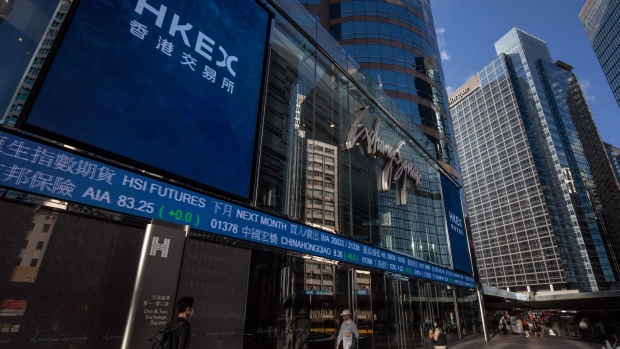Jan 30, 2023
Morgan Stanley Says Buy the Dip After Hong Kong Stocks Slumped
, Bloomberg News

(Bloomberg) -- Morgan Stanley sees Monday’s dive in the Hong Kong stock market as an “opportunity” and recommends investors buy the dip, as China’s economy recovers, relations between Beijing and Washington stabilize, and correlation with the US market remains low.
“We continue to stay Overweight on Chinese equities and would take the current opportunity to recommend buy the dip, ” wrote Laura Wang, the Wall Street bank’s chief China equity strategist in a Jan. 30 note.
The Hang Seng Index declined more than 2.7% on Monday, erasing most of its gain of 2.9% in the two trading days last week following Hong Kong’s Lunar New Year holidays. The benchmark is still up 12% so far this year.
Key drivers of Monday’s correction included mixed holiday data, uncertainty surround a potential US investment ban on tech sectors in China, and profit taking ahead of the Federal Reserve’s rate decision due on Feb. 1, according to Morgan Stanley.
The bank continues to see encouraging signs of policy makers in China prioritizing economic growth over other initiatives as demonstrated at the State Council and provincial level meetings in Beijing, Shanghai, Zhejiang, and Guangdong.
On the US-China relationship front, Wong cited an upcoming visit by Secretary of State Antony Blinken and the promotion of Qin Gang as the new Foreign Minister as signs of stabilization in their bilateral relationship. She also flagged the possibility of Chinese President Xi Jinping visiting the US during the planned APEC Summit in San Francisco later this year.
Morgan Stanley’s Hong Kong stocks outlook is in line with long-time market veteran Hao Hong, who predicted the city’s benchmark equity index may jump to the highest level since early 2021.
In addition, Wang said the China equity market’s correlation with its US counterpart has dropped to near-historical lows. “China’s relatively independent post Covid recovery trajectory, independent fiscal and monetary policy tools, and generally improving business and operational environment should help ensure this performance decoupling continues for longer,” she said.
©2023 Bloomberg L.P.





